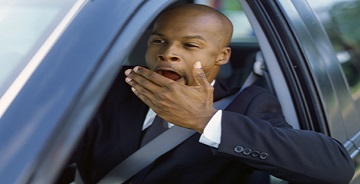Are there really more accidents around daylight saving time changes?
There are a lot of things to dislike about daylight saving time: the disruption in our sleep schedule, the onslaught of seasonal puns in retail advertisements, the fact that it doesn't work as well at saving energy as we've always been told, and thus, it really serves no purpose.

Khodrocar - But have you ever thought about the possibility that daylight saving time might actually be dangerous? When the clocks spring forward and fall back each year, it's only by an hour, but research suggests it may take days to adjust to the time difference. And during that adjustment period, there is a spike in car crashes, especially after we "spring forward" and lose an hour of sleep. Some police departments say that there's about a 10 percent increase in crashes just after the time change [source: Boynton] and there's even evidence that figure might be much higher.
Researchers at the University of Colorado at Boulder studied the daylight saving time period (from March to November) for 10 years and discovered there was a 17 percent increase in traffic incident-related deaths the Monday after the spring time change. Traffic fatalities all that week were also higher than average. Some of the effects can be attributed to lower visibility (the fact that it's earlier, and therefore darker, than drivers are accustomed to), but most of the accidents, experts say, are because people are struggling to stay awake behind the wheel.
The traffic statistics alone seem like pretty conclusive evidence that daylight saving time is more than a mere inconvenience. And researchers say that the grogginess we feel for the first couple of days after we change the clocks might just be scratching the surface of how our bodies actually process the disruption. People who only sleep four or five hours a night under normal circumstances are at a much higher risk of causing a car crash than people who sleep six or seven hours a night, and people who get eight hours of sleep or more are least likely to cause a crash. But when sleep cycles get disrupted, everyone gets messed up.
Source: HowStuffWorks
Latest News


